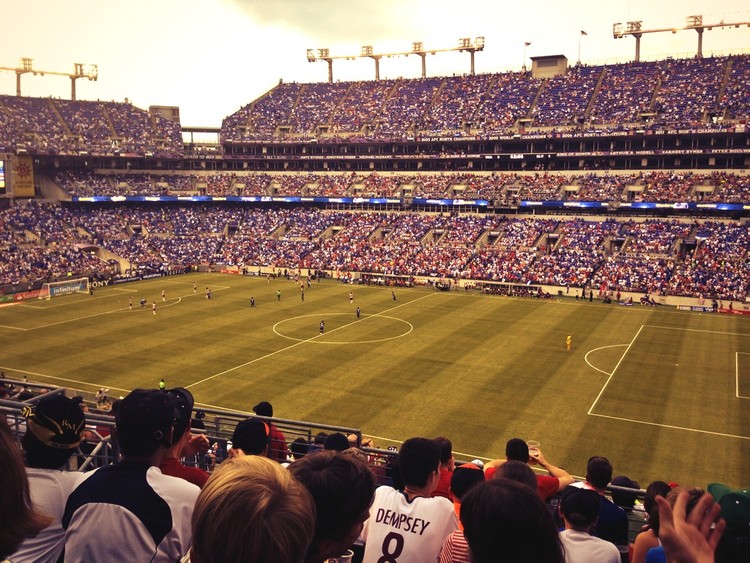
I hope you have caught your breath after this year’s FIFA World Cup. France’s win in Moscow’s Luzhniki Stadium marked the end of an era; the last World Cup with a classic format. After the 2022 Winter tournament in Qatar, the competition will be expanded to 48 teams (rather than the current 32).
For architects it is simple: more teams equals more games which equals more beautiful stadia. In this article, we'll take a look at the potential venues for “the United Bid” - where the U.S., Canada, and Mexico will join forces to host the world’s largest sporting event - showing the existing and proposed stadia, and the architects who designed them.
Before we reveal the list, it’s important to understand the factors that have influenced the decisions. The 2026 United Bid’s success was due in large part to the existing stadia and infrastructure that the three nations could offer, a stark contrast in comparison to the 2022 Qatar bid. This means we can predict with some accuracy the existing venues who are ‘host worthy:’ a 40,000 capacity is essential for each venue, according to FIFA, who also states that the city must be capable of having at least 5 games. We also know that 60 of the 80 games will be played in the U.S. and that 6 cities - Mexico City, Guadalajara, Monterrey and Toronto, Edmonton, Montreal - have been confirmed as Mexican and Canadian host cities already. The remaining 10 spots will be chosen from the 17 U.S. cities that have been put forward as potential hosts, and the 2 venues of 80,000+ for the opening and closing games are yet to be chosen. The front-runners for this prestigious honor are HKS’s proposed Los Angeles Stadium, the MetLife Stadium, and the Rose Bowl - which hosted the last Men’s World Cup on North American soil.
USA
Atlanta / Mercedes-Benz Stadium / HOK, tvsdesign, Good Van Slyke Architecture, and Stanley Beaman & Sears
Baltimore / M&T Bank Stadium / Populous

Boston / Gillette Stadium / Populous

Cincinnati / Paul Brown Stadium / NBBJ

Dallas / AT&T Stadium / HKS Architects

Denver / Mile High Stadium / Stanley E. Morse

Houston / NRG Stadium / Populous and Houston Stadium Consultants

Kansas City / Arrowhead Stadium / Kivett and Myers, and Populous

Los Angeles / Rose Bowl / Myron Hunt

Los Angeles / Los Angeles Stadium Hollywood Park / HKS, Inc.

Las Vegas / Las Vegas Stadium / MANICA Architecture and HNTB

Miami / Hard Rock Stadium / HOK/360

Nashville / Nissan Stadium / Populous, and McKissack & McKissack

New York / Met Life Stadium / HOK, Bruce Mau, Rockwell Group, and EwingCole

Orlando / Camping World Stadium / HNTB

Philadelphia / Lincoln Financial Field / NBBJ

San Francisco / Levi’s Stadium / HNTB

Seattle / CenturyLink by Ellerbe Becket / LMN Architects

Washington, D.C. / FedEx Field / Populous
.jpg?1532298726)
Canada

Montreal / Olympic Stadium / Roger Taillibert
Edmonton / Commonwealth Stadium / Bell, McCulloch, Spotowski and Associates

Vancouver / BC Place / Studio Phillips Barratt, Ltd. and Stantec Architecture Ltd. (renovation)

Toronto / BMO Field / Brisbin Brooks Beynon Architects

Mexico

Mexico City / Estadio Azteca / Pedro Ramírez Vázquez
Monterrey / Estadio BBVA Bancomer / Populous, VFO and Federico Velasco

Guadalajara / Estadio Akron / Jean Marie Massaud & Daniel Pouzet, Populous and VFO architects























.jpg?1532298726)










